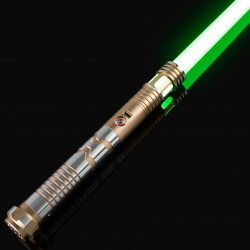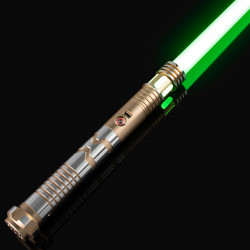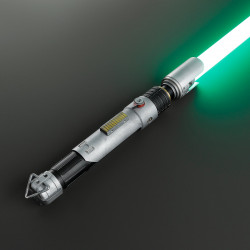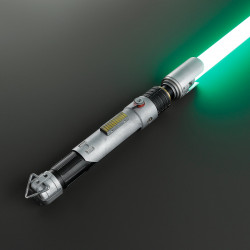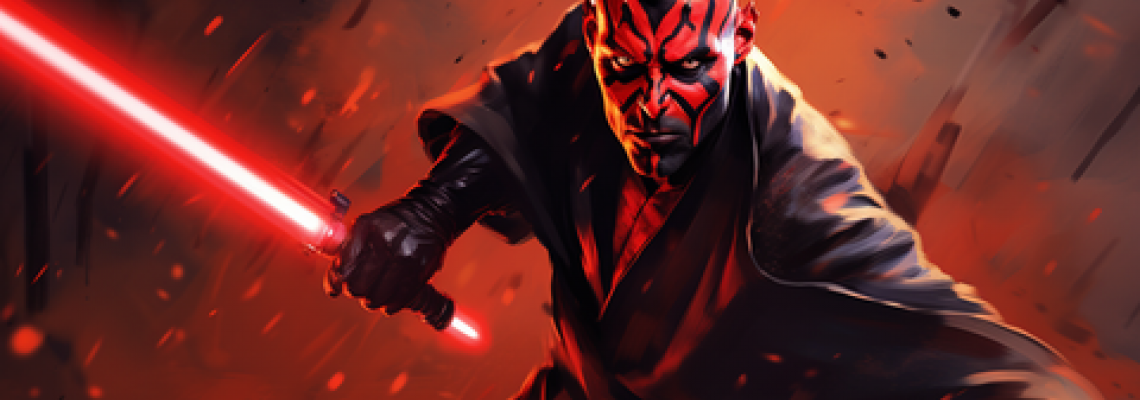
Crazy Star Wars Theories That Make Saga Special
The Star Wars franchise holds significant cultural value. It has permeated every aspect of our popular culture for nearly fifty years. Fans of the show love analyzing every detail seen in the foreground or background of the screen.
It's entertaining, but it also makes watching other Star Wars endeavours more enjoyable.
The Saga is full of hidden surprises. It includes references to real and made-up historical events. It also mentions their movies.
The fact that a space opera with this much depth would include so many theories is no accident. While some of these notions are only conjecture, many are so simple that they will astound you.
Let's explore these wild notions and their implications for the story of the Saga.
NOTE: A few of these hypotheses are Star Wars fan theories, and Disney has neither confirmed nor denied them.
The admirers of the Operactic Saga are present all over the globe.
“Wonders Happen When You Cross Cultures”
Theory 01 - The Nature Of Force
According to this darker Star Wars idea, the Force is a symbiotic organism that feeds on emotions like a cosmic parasite rather than being kind. Consider the innumerable battles the Force has sparked, employing Jedi and Sith as mere puppets, unintentionally enhancing the Force.
Evidence
The Force may have its own purpose, as the Saga suggests, and it is more than simply a neutral field of energy. The Skywalker family’s strong link to the Force may be a made-up story. There is evidence that supports this idea.
Implication
Rey's connection to Palpatine shows how the Force influences bloodlines to produce strong individuals. One of the significant ramifications of this theory is the identity of the True Chosen One.
Verdict
It subverts the notion of the Chosen One. Maybe it's not Rey who provides equilibrium, but rather someone else entirely who is the true Chosen One, inadvertently fulfilling the Force's will.
This theory gives Saga a more sinister tone than it has, which makes it dramatic yet enjoyable for viewers.
Theory 02 - Grogu Is A Clone
The grogu-clone theory is quite well-liked among enthusiasts. It implies that Grogu is a clone of the fabled Jedi Master Yoda rather than a creature born of nature.
Because both characters have quite similar appearances, this theory gained notoriety. They share a strong connection through the Force. Some believe Grogu looks younger than he is because the cloning process made him age faster.
Evidence
Their species is extremely rare, even in the far galaxy where Yoda and Grogu lived. Not much is known about the kinds of Yoda and Grogu. In the Saga universe, their presence has always been a mystery; therefore, cloning might explain.
The idea that cloning results in memory loss is a hotly contested one.
Grogu doesn't remember much about his past, especially before the Jedi Order fell. This suggests he might be a clone.
Implication
The major implications would include:
- Ethics: Cloning force sensitives could change the course of history if it allows for the creation of an army. It poses moral issues regarding the nature of the Force and personality.
- Empire’s Reach: The Empire might have done Grogu's cloning. This would include their reach and lust for power, ultimately turning the Force into a weapon.
- Identity crisis: Numerous Star Wars characters' identities would be destroyed if Grogu were a clone of the fabled Yoda.
Verdict
The Saga has passages that show that Grogu is not a clone. This argument only makes sense if we consider Grogu exceedingly old, which contradicts the established chronology of the Space opera universe.
Still, it's a fun idea that makes people talk about where the Grogu came from!
Theory 03 - Han Solo Is the Ghost Apprentice Of Obi-Wan Kenobi's Force
Though absurd, this theory is supported by a few instances in the Saga, such as the parallels between Obi-Wan and Han's combat techniques. Their lightning-fast reflexes and defensive lightsaber talents are well known.
Using a blaster, Han battles Greedo at the Mos Eisley cantina. However, his method is similar to how Obi-Wan disarms Grievous in Episode III. Could Obi-Wan be subtly influencing Han's instincts?
Evidence
Han's morality transformed from being a self-centred smuggler to joining the Rebellion in exchange for a substantial reward. He does, however, grow more courageous and devoted during the first three books. When Han was a Force ghost floating around Tatooine, Obi-Wan would have softly nudged him towards the light with small Force nudges.
Obi-Wan helps Luke, Han supports Luke's cause, and they have a strong bond.
Implication
Perhaps Obi-Wan forced Han to follow Luke to fulfil his ambition of toppling the Empire. Since Obi-Wan couldn't interact with the physical world directly, he softly pushed Han toward bravery and changed his behaviour. This adds a new level to their connections and redefines what it means to be a Force instructor.
Verdict
If this theory is true, it gets harder to distinguish between prophecy and manipulation. Was Han's decision to join the Rebellion intended, or had Obi-Wan subtly influenced him?
Despite being unrealistic, this theory offers a novel viewpoint on Han, Obi-Wan, and their involvement in the revolt. This interesting exercise shows how Han Solo and Obi-Wan Kenobi are related.
Theory 04 - Rogue One & Solo May Not Be Standalone Films
These so-called stand-alone films have a fascinating place in the history of Star Wars films. Metaphysical in nature, there's an intriguing theory about the movies.
The hypothesis proposes that the Force has breaks in its structure. These breaks are depicted in stand-alone movies. These movies showcase different worlds and stories that run alongside the main saga.
Evidence
The Standalone films like Rogue One and Solo have a weaker connection to the Force compared to The Skywalker Saga.
The link between Han Solo from Solo and Jyn Erso from Rogue One is more grounded, in contrast to the epic density of Luke and his father, Anakin. This unusual presentation demonstrated the Force's lack of emphasis compared to the Skywalker lineage.
Standalone movies include nuanced moral quandaries. In Rogue One, Jyn and Andor commit crimes for the greater good. Han Solo, the smuggler, is constantly more concerned with staying alive than anything else.
The Skywalker Saga tells clear good vs evil stories, so it makes sense that the Skywalkers are not in the stand-alone movies.
Implication
Fans are excited about the opening of A Multiverse of Star Wars. This anticipation is due to the franchise's popularity in culture.
This raises other queries, such as:
Can't be force-maintained without the Skywalkers?
Does a Skywalker always need to fulfil the will of the Force?
Is Skywalker Saga about a singular predetermined destiny and more about a pivotal point in a giant cosmic game?
Is the Skywalker Saga just one thread in a vast tapestry of multiple events?
Verdict
This Star Wars concept is popular with fans. It provides a fresh and unique view of the independent films and the entire Saga series.
It suggests that there is much more to Star Wars mythology than just lightsaber battles, good versus evil, and even The Force.
This idea expands on the realm of Space Opera.
Theory 05 - The R2-D2 Deception
Star Wars is a big story about fighting the Empire. It shows the battle between good and evil. The story focuses on the destiny of the Skywalker family.
Prepare to be astounded by this wild fan theory: What if the entire narrative is fabricated and twisted by a droid with a hidden agenda?
More than merely a droid, R2-D2 serves as the story's unreliable narrator throughout.
Evidence
In Star Wars, it's suggested that R2-D2, with his mysterious sounds, is a clever and skilled manipulator.
There were moments in the Saga when it was shown that the droid might have selfish goals and wasn't simply a witness to but even a part of some of the franchise's events.
At moments, the story seems like a biased biography. R2's narrative of the events as he perceives them.
He might be downplaying his own role. He could be exaggerating the bravery of certain individuals, like Luke Skywalker. He may also be hiding information about others, such as the true nature of Darth Vader.
However, why would R2 want to alter the story? There are a lot of conjectures.
Implication
This Star Wars idea raises serious doubts about the entire Saga, especially if it is true. We need to reconsider the events' significance, the protagonists' motivations, and the nature of the real battle between the Jedi and the Sith.
There are still certain important details that are unknown, such what precisely transpired during Anakin Skywalker's fall. Is it feasible that R2 is purposefully leaving something out to protect someone?
Is it too far? Indeed. However, the cosmos of space opera gains a degree of excitement from this wild theory. It compels us to reevaluate our assumptions and explore the idea that reality could be significantly more nuanced than the narratives we have been taught.
Verdict
Though this theory is unsupported by solid data, the issue still stands: Is R2 a trustworthy ally or a cunning manipulator? The answer lies ahead for more investigation, much like space's vast, uncharted territories.
Theory 06 - The Kenari Project: The Foundation Of The Empire Is A Lie
The main idea of the theory is that the Galactic Empire was founded on a falsehood.
The Republic started an initiative that they called the Kenari initiative.
The purpose of the project is not clear. However, some theories suggest it is meant to help the Republic. The project may involve creating powerful beings with Force abilities.
Evidence
There's a good chance Senator Palpatine knew about the Kenari Project. He might have planned its destruction when he ascended to the throne as Emperor Palpatine. The initiative is a means of gaining authority.
The Kenari Project may have been a time when the Empire downplayed the Republic's accomplishments.
Implication
The Empire was complicit in rewriting history if this theory is correct. We shall highlight any details regarding the Empire and the Republic that we know.
The real goal of the Empire is to consolidate power by controlling events and stifling the truth, not to uphold law and order in a distant galaxy.
What will happen to the Republic, the Empire, and even the Resistance becomes doubtful.
Verdict
The existence of the Kenari Project, which is predicated on reinterpreting past events, is not supported by any hard data.
It is sometimes clear from the theory why the Empire needed to concoct such a massive falsehood. Some people think the Empire grew by taking advantage of opportunities. They believe this was more important than needing to fully understand the Republic's problems.
A unique viewpoint on the decline of the Republic and the establishment of the Empire is provided by the Kenari Project theory, which is an intriguing thought exercise.
CONCLUSION
Star Wars is more than just a space opera featuring epic soundtrack and lightsaber battles. The imagination of its admirers drives this realm of endless possibilities more than anything else, not even the Force.
Fans express their love for the story in many unique ways. They have different beliefs about the true meaning of the Force. They also have ideas about how Droids behave in the Saga.
Despite their absurdity, certain Star Wars conspiracy theories spark discussions, challenge preconceived notions, and open new avenues for our understanding of the franchise. These theories elevate the beloved series above the status of a simple film franchise, regardless of your belief that R2-D2 is some puppet master or that the Force is a massive cosmic parasite.
So remember these wild theories the next time you watch a Star Wars film. Now, you might see the distant galaxy entirely differently.
Like always;
May the Force be With You!
















